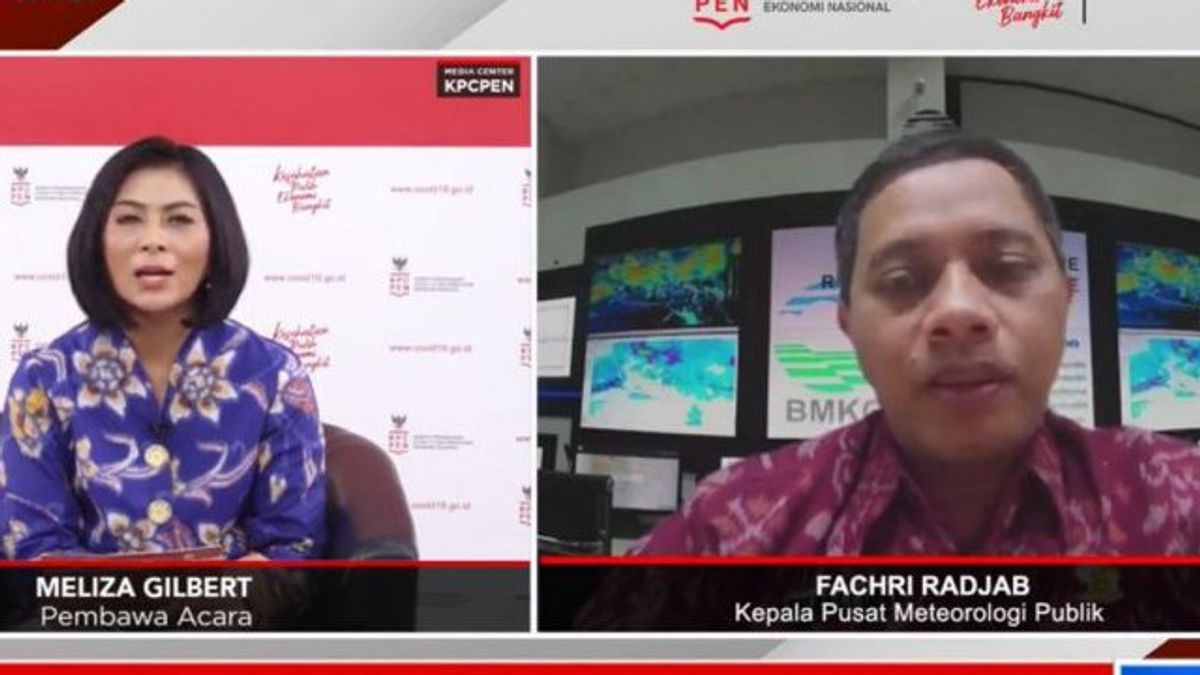JAKARTA - Head of the Public Meteorology Center of the Meteorology, Climatology and Geophysics Agency (BMKG), Fachri Radjab, said that the challenges faced by the Indonesian people in facing potential disasters in the midst of the COVID-19 pandemic situation will be even greater.
Fachri said that more careful steps were needed in handling people affected by the disaster, so they had to be accommodated in refugee camps.
“For example, when it comes to evacuations, the refugees must be conditioned to apply health protocols. If there is an evacuation, rescue, the challenge will also be greater," said Fachri in Jakarta, Friday, November 26.
Fachri said 98 percent of potential hydrometeorological disasters occur in Indonesia, and will occur throughout the year.
In the rainy season from December 2021 to January and February 2022, the community will face potential floods, flash floods, and landslides.
Then at the change of seasons there can be heavy rains of short duration, strong winds, tornadoes to hail.
Meanwhile, in the dry season from June to September 2022, disasters that will often occur, namely drought, and forest and land fires.
Meanwhile, Fachri said, most of Indonesia has entered the rainy season. Coupled with the La Nina phenomenon, which causes the intensity of rainfall to increase by 20-70 percent from normal.
The La Nina phenomenon is expected to continue until the end of the rainy season in April 2022.
The increase in rainfall, continued Fachri, will be felt in parts of Sumatra, Java, Bali, West Nusa Tenggara, and parts of Sulawesi.
Thus, BMKG will continue to provide information on early detection of impact-based weather forecasts at the sub-district level as many as 7,500 units throughout Indonesia, increasing the accuracy of information resolution.
“What is no less important is the response. No matter how sophisticated the BMKG tools are, no matter how accurate the information is, no matter how fast the dissemination is, if the public can't understand our information and don't follow it, it's certainly not optimal," he said.
The English, Chinese, Japanese, Arabic, and French versions are automatically generated by the AI. So there may still be inaccuracies in translating, please always see Indonesian as our main language. (system supported by DigitalSiber.id)













